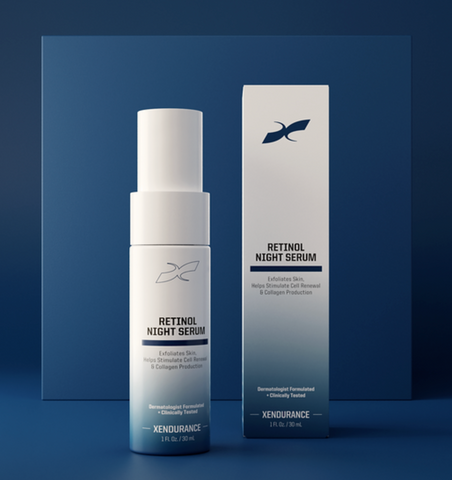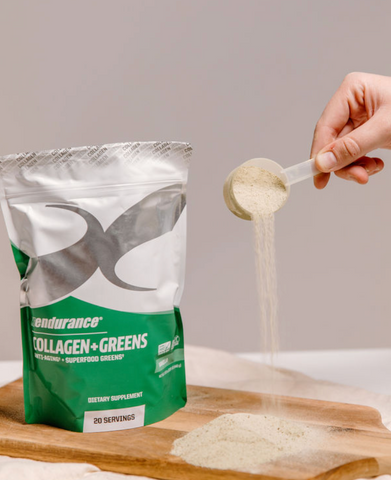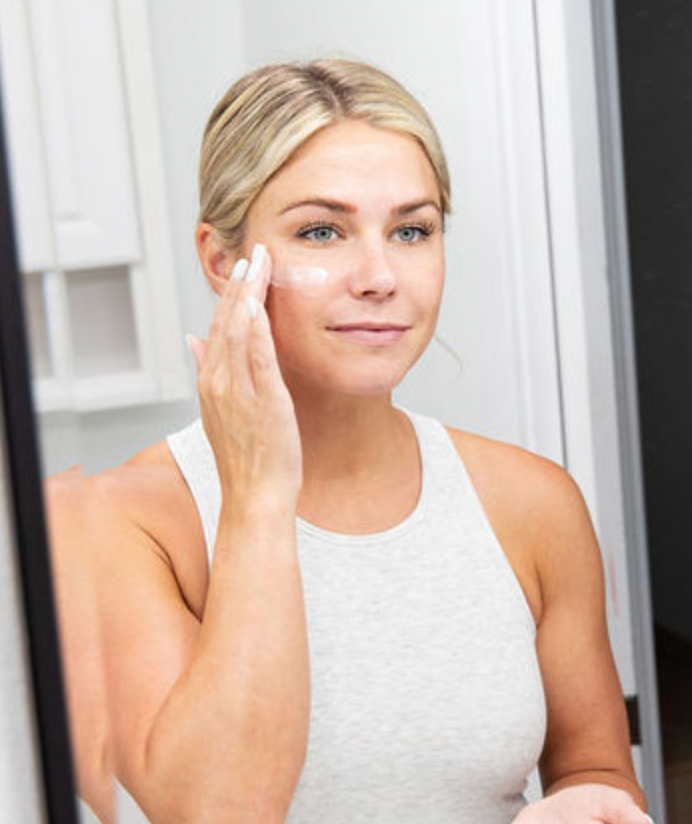Maintaining and improving skin elasticity is a cornerstone of youthful, healthy-looking skin. As we age, our skin's natural elasticity decreases due to the breakdown of collagen and elastin—proteins that provide the skin with its stretch and structure. The good news is that through both skincare routines and dietary supplements, including vitamins for skin elasticity, it's possible to support and even increase your skin's elasticity. This comprehensive guide will explore how a combination of topical treatments and internal nourishment can synergize to enhance skin health and appearance, providing insights on how to improve skin elasticity effectively.
Understanding Skin Elasticity
Skin elasticity refers to the skin's ability to stretch and bounce back to its original shape. Youthful skin is typically more elastic and firm, thanks to a robust network of collagen and elastin fibers. However, factors such as aging, sun exposure, pollution, and lifestyle choices (like smoking and poor diet) can significantly reduce skin elasticity over time. To combat these effects, many turn to skin elasticity supplements and dietary changes to help improve skin firmness and overall appearance.
When Do We Start Losing Skin Elasticity?
Skin elasticity begins to decline as early as our mid-20s to early 30s, varying widely among individuals due to factors like genetics, lifestyle, and environmental exposures. This gradual loss accelerates with age, as collagen and elastin, the proteins responsible for skin's stretch and bounce, diminish. Key contributors include sun exposure, smoking, pollution, and poor nutrition. By the time we reach our 40s and 50s, these changes become more pronounced, leading to visible signs of aging such as wrinkles and sagging skin. Learning how to increase skin elasticity through targeted actions can help mitigate these effects.
The Role of Skincare in Enhancing Elasticity
A targeted skincare routine can play a pivotal role in preserving and improving skin elasticity. Understanding how to boost elasticity in skin through various methods can significantly impact your skin's health. Here are some key components:
1. Sun Protection
UV exposure is a primary culprit in breaking down collagen and elastin. Using a broad-spectrum SPF of at least 30 daily, even on cloudy days, is non-negotiable for protecting your skin's elasticity.
2. Retinoids
Retinoids, including over-the-counter retinol and prescription retinoids, are gold standards in skincare for promoting collagen production. They help improve skin texture, reduce wrinkles, and enhance elasticity. Start with a lower concentration to build tolerance and always use as directed by a healthcare provider.
3. Vitamin C
This potent antioxidant protects the skin from free radical damage and is essential for collagen synthesis. Applying a vitamin C serum daily can help improve skin elasticity and overall brightness.
4. Peptides
Peptides are short chains of amino acids that signal your skin to produce more collagen and elastin. Products containing peptides can improve skin firmness and elasticity over time.
5. Hydration
Adequate hydration, both internally by drinking water and externally through hydrating skincare products, keeps the skin supple and resilient. Look for products containing hyaluronic acid, which can hold up to 1000 times its weight in water, drawing moisture into the skin.

The Power of Supplements for Skin Elasticity
While topical treatments are essential, they only address one part of the equation. Skin elasticity supplements can provide the necessary building blocks for collagen and elastin from the inside out, offering a comprehensive approach to increase skin elasticity.
1. Collagen
Oral collagen supplements have been shown to improve skin elasticity and hydration. They provide bioavailable collagen peptides, which can stimulate your body's own collagen production.
2. Vitamin C
Not just for topical use, vitamin C is crucial for collagen synthesis within the body. A sufficient intake of vitamin C through diet or supplements can support skin health and elasticity.
3. Omega-3 Fatty Acids
Found in fish oil and flaxseed oil supplements, omega-3 fatty acids help maintain the skin's lipid barrier, essential for keeping the skin hydrated and plump.
4. Antioxidants
Antioxidants like vitamins E and A, selenium, and green tea extract can protect skin cells from oxidative stress, which contributes to the breakdown of collagen and elastin.
5. Hyaluronic Acid
Hyaluronic acid isn't just for topical use; taken as a supplement, it can help increase skin moisture and reduce the appearance of wrinkles, aiding in maintaining skin elasticity.
Scientific Insights on Collagen and Skin Health
Scientific research supports the use of collagen supplements for improving skin elasticity. Studies have shown that ingesting hydrolyzed collagen peptides can lead to noticeable improvements in skin hydration, elasticity, and overall dermal collagen density. This is attributed to collagen peptides' ability to stimulate the body's own collagen production, enhancing skin structure and function. The positive effects on skin health include reduced wrinkles and increased firmness, contributing to a more youthful appearance. These outcomes suggest collagen supplementation could be a beneficial addition to skin health regimens, especially for those seeking how to improve skin elasticity.
Lifestyle Factors Affecting Youthful Skin
In addition to skincare and supplements, certain lifestyle modifications can support skin elasticity:
- Stay Hydrated: Drinking enough water is crucial for maintaining skin hydration and elasticity.
- Eat a Balanced Diet: A diet rich in fruits, vegetables, lean proteins, and healthy fats provides the vitamins and minerals necessary for healthy skin.
- Exercise Regularly: Physical activity improves circulation, which can help keep your skin healthy and vibrant.
- Limit Sun Exposure: Avoiding prolonged sun exposure and wearing protective clothing can protect your skin's collagen and elastin.
-
Avoid Smoking: Smoking accelerates skin aging and reduces skin elasticity by breaking down collagen and narrowing the blood vessels in the skin.
Beyond the Surface: Concluding Thoughts on Enhancing Skin Elasticity
Improving and maintaining skin elasticity is a multifaceted approach that involves both external skincare treatments and internal nutritional support. By protecting your skin from environmental damage, nourishing it with the right skincare ingredients, and supporting your body with the necessary supplements and lifestyle choices, you can enhance your skin's elasticity and overall health. Remember, consistency is key, and it's never too late to start caring for your skin. With the right practices, you can enjoy firm, youthful, and resilient skin at any age.









Leave a comment
This site is protected by hCaptcha and the hCaptcha Privacy Policy and Terms of Service apply.